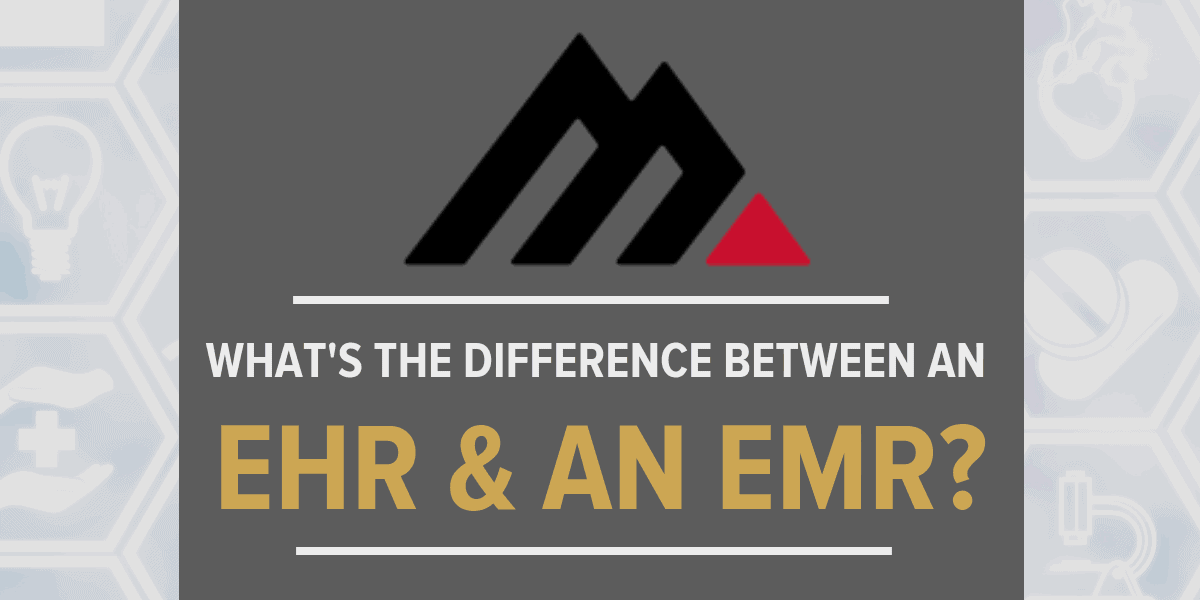
EHR vs. EMR: What’s the Difference?
You know the deal. Go into the doctor’s office, get checked on by a nurse, and see everything being logged into a chart by hand. Then you wait until the doctor comes in, finishes up your annual physical and makes his own entries into your folder, probably on a different piece of paper. If you’ve been with this doctor for a long time, you can be sure of one thing: There is a large folder with your medical history laying around the office somewhere, and the chance of you having multiple folders is pretty, pretty good.
The Shift to Digital Medical Records
But as with any business, things are becoming more digitally focused. And the healthcare industry is no different; hence the evolution of both an electronic health record (EHR), and an electronic medical record (EMR).
What is the difference between EHR vs. EMR? More than any non-medical professional could ever understand, and that is important because of the many uses that each record can be utilized for, and what role each plays in a person’s life when it comes to their connection to a physician or healthcare organization.
One letter can make a world of difference between electronic health records (EHR) and electronic medical records (EMR). And while the healthcare business moves to digital records for patients and away from the bulky folders filled with paper records, it has been spurred by the money that organizations — both private and federal — have invested to fund the transition.
Defining EMR & EHR
- An EMR offers improved care and can give better reminders to a patient about any checkups or screenings over time thanks to being a digital version of a paper chart, which contains the medical history of a person that is the primary physician.
- An EHR is also a digital version of a paper chart, but can be shared with other providers beyond the main one that a patient has. That way, different providers can see the same chart. It allows for more sharing because it is a complete medical history of a patient, from big things like lab results to small things like allergies.
The Differences Between EMR and EHR
A health record or EHR is more expansive because it shows a full picture of a patient’s history, whereas the medical record or EMR is more streamlined. EMRs are more exclusive and used to diagnose and treat a patient by a provider, where an EHR can be transferred to a new provider if a patient moves from one state to another.
The Benefits of EHRs and EMRs
A person’s medical or health issue can be accurately diagnosed thanks to the fuller picture of information, plus it helps making the prescribing of medication safer. With the information more readily available at a moment’s notice, the charts can be clearly interpreted (no more bad handwriting jokes!) and therefore lessens the chances of a medical error.
What About Privacy?
There’s no difference between the records being digital or paper that would make them more public in any way, shape or form. The main difference when it comes to access is the breadth of medical and health professionals that can access an EMR compared to an EHR. An EMR in some ways is the same as a paper record in that it is more closely held by a person’s physician. The EHR could be accessed by anyone involved in a patient’s care, whether a specialist or not, and can be transferred along with a patient should they relocate to a different area of the country.
An electronic medical record is imperative to a practice’s operational effectiveness. Should there be a sale of a medical group or network or a merger occur, something that must be determined is the fate of the EMR system and making sure the data is protected and treated with utmost care.
Should Providers Be Concerned About the Shift to Digital Records?
In a February 2018 story by MD Magazine, it was reported that one MD asked his staff of 75 health care providers if the EMR system was better than the old system of keeping records, and the vote was 75-0 against EMRs. Ironically, the fact that an EMR can contain so much information about a patient’s medical history means that everything being logged into the record takes a large amount of time in some cases, which is time that many physicians don’t have.
Ready to Integrate an EMR or EHR into Your Practice?
Talk to a Med USA EHR Expert Today!


